Email from Stephen Taupen – Groundswell Fisheries Movement – Catch Shares
NPFMC approves statement of purpose and need for groundfish rationalization by James Brooks/ editor@kodiakdailymirror.com Kodiak Daily Mirror
Oct 10, 2012 (Wednesday) The North Pacific Fishery Management council has approved a groundfish rationalization motion that includes many of the items sought by the Kodiak Island Borough and city of Kodiak.
On Tuesday, the final day of the weeklong fisheries meeting in Anchorage, the council approved a statement of purpose and need for groundfish rationalization. The statement isn’t a plan or even a blueprint — but it sets the council’s goals as it embarks on a multi-year process that will wholly alter the shape of pollock and cod fishing in the Gulf of Alaska……..The brunt of this,and Stephens response will be in the comment section to save space on the front page, Read More.
Kodiak Daily Mirror — Friday, October 12, 2012 (as published)
Henny Pennys self-declare a crisis in the gulf fisheries
To the Editor:
Wednesday’s article about the North Pacific Fishery Management Council missed the trickery of disaster economics used by central Gulf of Alaska groundfish trawlers. Alaska Groundfish Data Bank and Whitefish Trawler Association representatives boldly declared “there is a crisis in the Gulf groundfisheries.”………Read more


































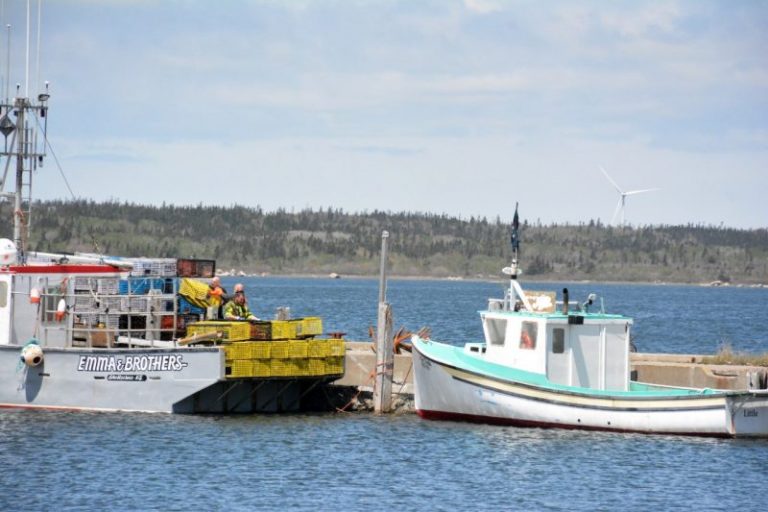
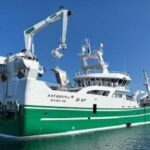
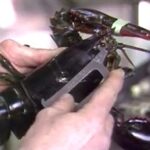
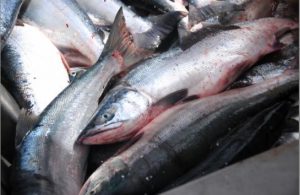
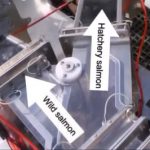
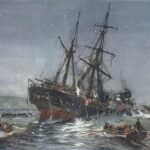
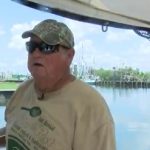


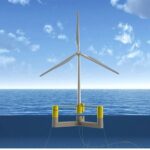
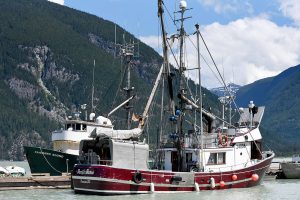
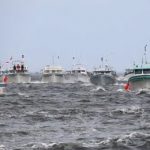



The North Pacific Fishery Management council has approved a groundfish rationalization motion that includes many of the items sought by the Kodiak Island Borough and city of Kodiak.
On Tuesday, the final day of the weeklong fisheries meeting in Anchorage, the council approved a statement of purpose and need for groundfish rationalization. The statement isn’t a plan or even a blueprint — but it sets the council’s goals as it embarks on a multi-year process that will wholly alter the shape of pollock and cod fishing in the Gulf of Alaska.
“This is the beginning, and I think they will be working for a while,” said Julie Bonney of the Groundfish Data Bank, which represents the Kodiak trawl industry in council discussions.
Pollock and cod are the mainstays of Kodiak processing plants, but in recent years the boats that harvest those fish have been accused of accidentally taking too many king salmon, halibut and other highly valued fish.
Regulatory caps permit trawlers from taking too many of those fish, called bycatch, but if prices spike and more boats fish for pollock, the fleet runs the risk of a regulation-imposed shutdown that could cost Kodiak seafood processors millions in lost revenue. That translates into an even bigger impact for the island’s economy.
“It's time to change the management structure for the trawl industry,” Bonney said. “That's what this is really about; to move forward with a catch share plan.”
The question now becomes what form that plan will take — whether it will assign fishermen individual quotas of pollock and cod, as has been done with halibut, or whether it will assign fishermen individual quotas of bycatch and limit their pollock and cod catches indirectly.
On Monday, Kodiak Mayor Pat Branson and Kodiak Island Borough Mayor Jerome Selby testified before the council, saying that regardless of what the future holds for Gulf groundfish, it should not unduly affect Kodiak.
“Let's carefully think about what the implications are,” Selby said.
He compared the situation to what happened when the halibut fishery was rationalized. “We witnessed a significant reduction in the number of folks who drew some income from the fishery and a significant reduction in crewmembers,” he said.
Before halibut rationalization, about 5,000 people drew some sort of income from the halibut fishery, Selby said. Today, that number is around 2,000.
Selby and Branson presented a joint city-borough resolution, the result of months of work by the city and borough fisheries advisory board, and the council took many of the resolution’s suggestions.
The sixth goal approved by the fishery council states that any groundfish rationalization plan in the Gulf should “promote community stability and minimize adverse economic impacts by limiting consolidation, providing employment and entry opportunities, and increasing the economic viability of the groundfish harvesters, processors and support industries.”
Kodiak is the leading groundfish processing site in the Gulf of Alaska.
“I think the city and borough did get what they were asking for,” said Denby Lloyd, the Kodiak city-borough fisheries adviser. “Thus far, it satisfies the concerns.”
Tuesday’s vote was likely the easiest part of the groundfish rationalization discussion, however.
Translating goals into actions will take years. “I think that is going to be a little more difficult than goals and a ‘motherhood and apple pie’ statement,” Lloyd said. “You're going from general statements of 'gee, we want to benefit all sectors' … to this group should have this set of benefits.”
In addition, several of the goals approved Tuesday are contradictory. Under a rationalized fishery that splits the annual fishery quota, some boats may not be allotted enough fish to pay for operations. When they stop fishing, that could cause contraction of the fleet.
“Some concessions may be required,” warned councilman Sam Cotten before the vote.
Which concessions and by whom are questions that remain unanswered.
To the Editor:
Wednesday’s article about the North Pacific Fishery Management Council missed the trickery of disaster economics used by central Gulf of Alaska groundfish trawlers. Alaska Groundfish Data Bank and Whitefish Trawler Association representatives boldly declared “there is a crisis in the Gulf groundfisheries.”
Shock doctrine players typically create a disaster then demand government give them the public resources. It’s almost humorous to watch people be fooled by this trickery. Meanwhile, trawlers refuse to modify fishing practices to lower bycatch.
Councilman Sam Cotten questioned this Chicken Little tale by asking “is there really a crisis?”
The Henny Pennys stuck to their self-declared disaster. What else could they say when it’s about greed? Twenty-nine vessels wanted the quota all to themselves.
They’re upset that 21 other licensed permit holders chose to join in the race for catch history the Henny Pennys started years ago. Socialist freeloaders don’t like such competition, despite using words like “market-based solutions.”
Noting Steller Sea Lions, halibut and Chinook salmon bycatch issues, the council motion said that “consideration of a new management regime for the Central GOA trawl fisheries is warranted. The purpose of the proposed action is to create a new management structure which allocates allowable harvest to individuals, cooperatives, or other entities, which will eliminate the derby-style race for fish.”
How’s that warranted? The science and statistical committee and “best science” never reached that conclusion. Besides, who is taking halibut and Chinook in trawl nets, harming sustainability?
It’s a crisis that only they seem to be able to see because they created it. Psychologists identify such cognitive dissonance, and the confirmation bias and motivated (by money) reasoning, and tell us how biased believers go looking for evidence to confirm their emotional and irrational pleas. When it comes to imaginary problems, crying “the end of the world” really works.
The city and borough are supposed to feel pleased that a few clauses got put in the goals and objectives, but the island was blindsided once again. No mention was made of quota rights for real fishermen — captains and crew who actually do the work. Gulf Ratz socialism has begun.
Stephen Taufen
Groundswell Fisheries Movement
I was limited in length to 350 words, and adjusted and left things out, so … Be sure to note the attached, which contained the second page of the motion. It says:
The Council requests that staff provide a discussion paper that outlines various catch share options for the Central GOA trawl sector that may be available to meet the above objectives, and how other comparable programs have considered and applied the LAPP provisions in the MSA to meet similar objectives.
The Council adopts a control date of December 31, 2012. Any catch history after this date may not be credited in any allocation system when designing a future fishery management system.
Note, I used the term “socialism” to point out laissez faire capitalism, free markets with competition driving the real/rational price, is not something the wannabe quota owners (gifted public resources) want to embrace in the real world. What they really want is government-sponsored and -approved coercive monopolies organized as “cooperatives” etc. = IFQs, IPQs.
Remember the children’s tale, as:
Cluck, cluck….
Have a nice weekend.
Just workin' with what I've got folks!
Its the information thats important.